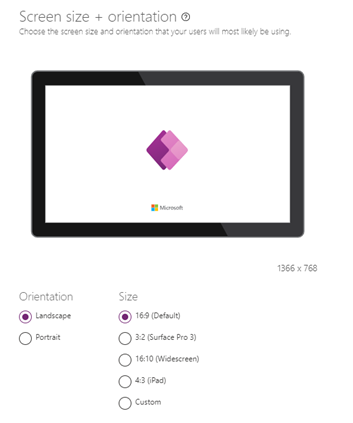Microsoft Power Apps: Your Questions Answered
Microsoft’s world of Power Apps is an extensive one. Here, we take a look at some of the most commonly asked questions and provide you with the answers you’re looking for.
What is Microsoft Power Apps and what is a Power Apps portal?
Power Apps is a suite of applications, services and connectors offered by Microsoft to enable people to quickly build custom business applications to fit their needs.
Power Apps is supported by Dataverse, Microsoft’s data storage platform; with Dynamics 365 (D365) applications like Sales, Marketing and Customer Service all using Dataverse as well, it’s easy to build applications on Power Apps based on data you already have stored.
When it comes to building Power Apps, there are three particular areas which are important:
- Power Apps Studio – Canvas apps
- App Designer – Model-driven apps
- Power Apps Portals Studio - design tool to add and configure webpages, components, forms, and lists
Power Apps portals are external facing websites that allow users outside of the tenant to be able to sign in with different credentials and work with the data in Dataverse. Portals recently became available as a standalone within Power Apps.
Model-driven apps don’t require code. The layout is largely determined for you – however, you can make them as simple or as complex as you need. Model-driven apps have rich components that allow you to model business data, provide forms for data entry, define a specific sitemap for your app and provide views on specific entities.
Canvas apps are business applications that can be built in Power Apps without having to write code in a traditional programming language. Power Apps uses a language known as Power FX, a language largely based on the formulas within Microsoft Excel to make it easy and intuitive. Canvas apps allow for custom design using ‘drag and drop’ to add elements to the screens, and enable you to create a focused user interface that ticks all your boxes.
A good example of a full working solution using canvas apps is the Crisis Communication application, which can be downloaded and deployed as a solution directly from Microsoft.
Power Apps can also be created within Microsoft Teams via Microsoft Dataverse for Teams. This is a relatively new product from Microsoft, which provides the ability to build custom apps and workflows with one click deployment. This is not to be confused with Power Apps, though, as there are a number of limitations with the Dataverse for Teams licensing model.
How do Power Apps work?
Canvas and model-driven apps that have been created in Power Apps can both be used in the Power Apps mobile application, which can be downloaded onto Apple devices via the iOS App Store and Android devices via the Google Play Store.
Once an application is published, users will automatically be given an updates (provided that they have an internet connection).
Power Apps can also be embedded into Microsoft Teams, any of the D365 suite, or onto an external website.
As Power Apps portals are external facing sites, these are webpages that can be shared with internal and external users.
Who is Power Apps for?
From a development perspective, Power Apps is primarily aimed at citizen developers – those with little to no coding experience.
Numerous businesses across the world have started deploying Power Apps as more efficient and affordable way of developing applications to aid business and technology transformation and streamline their business processes.
What licensing do you need for Power Apps?
Power Apps can be licensed as a per user plan or per app plan. A high-level overview can be seen below:

For more information on Power Apps licensing, please use the link below to download the Power Apps licensing guide:
Click to download the Power Apps Licensing Guide
Can Power Apps be used offline?
Power Apps can cache data locally on smart devices such as tablets and phones using the Power Apps application. There are two functions which are used to create an offline mode within canvas apps: LoadData() and SaveData(). These cannot be used when running the app in the web player or when authoring the app in the Power Apps Studio.
There are offline capabilities for model-driven apps that allow you to work with data even when you do not have internet access.
Can Power Apps be used on desktop?
Yes. With different templates in Power Apps, you can adjust the height and width of Canvas Apps to suit the needs of the business. There are pre-set values for the height and width, but if this doesn’t quite the resolution of your screens, you can manually change the values.

Can Power Apps be shared with external users?
Power Apps can be shared with external users, but they must be a guest of the Azure Active Directory tenant and have a Power Apps licence with either the tenant hosting the app or the home tenant of the guest user.
You can find more information on sharing apps with external users here.
Are Power Apps free?
Power Apps is free to use for 30 days on a trial plan. If you don’t already have a licence (with Office 365 or otherwise), there are extra features that come with the trial, such as the ability to create and run canvas apps that connect to Dataverse with more than 200 other data sources, including premium connectors.
Are Power Apps included in Office 365?
Select Office 365 licences include use rights for Power Apps. This will not be inclusive of every feature available within Power Apps (such as Dataverse or premium connectors). However, this is a very good starting point for those who already have licences included with their Office 365 subscription and are looking to try out Power Apps.
Here’s a high-level overview of the features available with select Office 365 subscriptions:

Can Power Apps connect to a SQL server?
Power Apps has a range of external data source connectors. One of the best connectors is the SQL Server connector. There are two versions of this connector: a simple Credentials connector and an SQL Server with AzureAD connector.
The connector works seamlessly with the Power Apps functions and is one of the most powerful connectors available on the platform, allowing you to integrate your data easily.
Related Updates

Contact us
Talk to our team about Power Apps
If you’d like to know more about Power Apps and how it could place the power to build customised business apps in your hands, get in touch with the Tisski team today.


